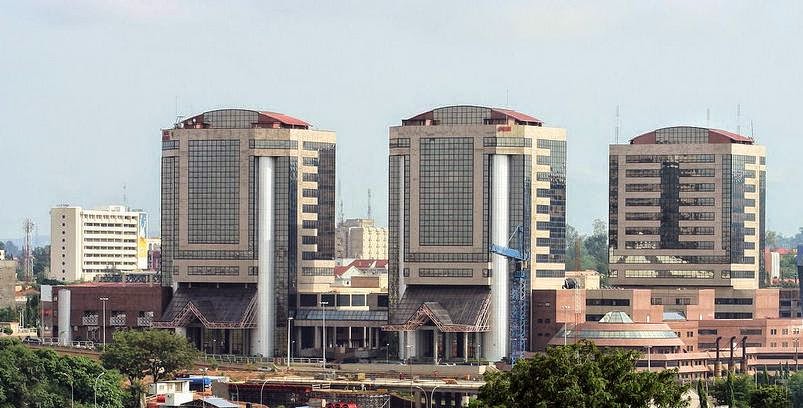NNPC / Nigerian National Petroleum Corporation was created by the merger of Nigeria National Oil Company (NNOC) and the Ministry of Petroleum Resources in accordance to decree 33 of 1977. NNPC is a Federal Government Corporation that is responsible for the management of the nations oil resources.
The Nigerian National Corporation has about 22 depots across the country. Some are not functioning due to lack of products occasioned by pipeline vandalism and other supply challenges.
Whether you are looking for investment opportunity or recruitment. Whatever thing you are looking for in NNPC, It is important that you understand some basic facts about the Corporation to be able to guide you in your quest. That is the reason I decided to publish some of the important questions and answers about the Nigerian National Petroleum Corporation as well as important links to other resources related to NNPC and the Oil and Gas industry in Nigeria.
If at anytime, after reading this, or in the course of your quest you have any question, feel free to ask us, using the comment box below, we’ll be more than glad to provide you with the answers you need.
NNPC Questions And Answers
PPMC / Pipelines And Products Marketing Company [Limited]. What Is It?
PPMC is a subsidiary of NNPC and is in charge of supplies Crude Oil to Refineries for refining and evacuates Petroleum Products from the Refineries for distribution to the domestic markets. It also ensures that daily National demand for Petroleum Products are met by augmenting local supplies from Refineries with import. In addition, PPMC markets other special products such as HPFO, LPFO, Bitumen etc.
It was incorporated in November 1988 as a wholly owned subsidiary of NNPC, and commenced operation in January 1989.
How Can One Become A Marketer Of PPMC Products?
What Is The Demand For Petroleum Products In Nigeria?
DPK = 8 million litres per day
ATK = 2 million litres per day
LPG = 192,000 Kg per day 15,360 cylinders of 12.5kg capacity
How Can One Buy Kerosene From PPMC?
Buying Kerosene directly from NNPC/PPMC is possible. To be able to purchase Kerosene from PPMC, you need to have authorized storage facility and be a registered marketer.
How Can One Get This Product Allocation?
There are different types of products. The white products i.e PMS – Petrol, HHK – House Hold Kerosene, ATK – Aviation Turbine Kerosene,
AGO – Diesel. These are allocated to Major and Independent Marketers. They sell these products in their various outlets.
However, in the past these Marketers use powerful and influential members of the public to obtain allocation for products they do not actually require, and turn around to sell the products to those who actually need it. There are other products mainly for Industrial users who have operational facilities.
These products such as LPFO, SRG, Bitumen & LPG are allocated to users directly. However, some of these industrial users prefer to sell the allocation instead of using the product in their factory. Machinery has been put in place to identify specific industries engaged in this bad practice for appropriate sanction. HPFO is mainly for export.
More question and answers from Nigeria National Petroleum Corporation can be found here.
Information about the current NNPC Recruitment and Jobs.
Investment opportunity in the NNPC.
Requirements for the Nigerian Crude Oil Marketing.
Upstream investment opportunity.
Investment opportunities in the downstream sector.
The Mainstream Ventures and investment opportunity.
In addition to its exploration activities, the Nigerian National Petroleum Corporation was given powers and operational interests in refining, petrochemicals and products transportation as well as marketing. Between 1978 and 1989, NNPC constructed refineries in Warri, Kaduna and Port Harcourt and took over the 35,000-barrel Shell Refinery established in Port Harcourt in 1965. However, the refining capacity have greatly declined over the years.
I have written some articles in the past on this website about some of the regular investment opportunities in the Nigerian oil and gas sector, and how to go about the businesses. Here are links to some of the articles
How to setup petrol filling station in Nigeria
Diesel supply business in Nigeria and how to start the business
How to start small scale Kerosene supply business
Some lists of oil and gas investment opportunities in Nigeria
Petroleum products marketing in Nigeria
How to participate in the oil and gas industry
How to start cooking gas business in Nigeria
How to multiply your investment by selling Engine Oil Lubricant
If there is any resources within your disposal you think you can contribute the this, kindly let me know and it shall be included.
Corruption In NNPC / Nigeria National Petroleum Corporation
Inadequate supply of products due to frequent breakdown of the local refineries, incessant pipeline vandalism and bureaucratic delays in discharging imported products, strike actions by labour unions, product hoarding and diversion by unscrupulous marketers, Government’s policy on subsidy. Dependence on imported products and changes in market fundamentals of Crude Oil and Refined products in the International Markets.
Corruption in the Nigerian oil and gas sector is said to leave 76% of oil revenues unaccounted for, according to the Central Bank of Nigeria.





Be the first to post a comment.